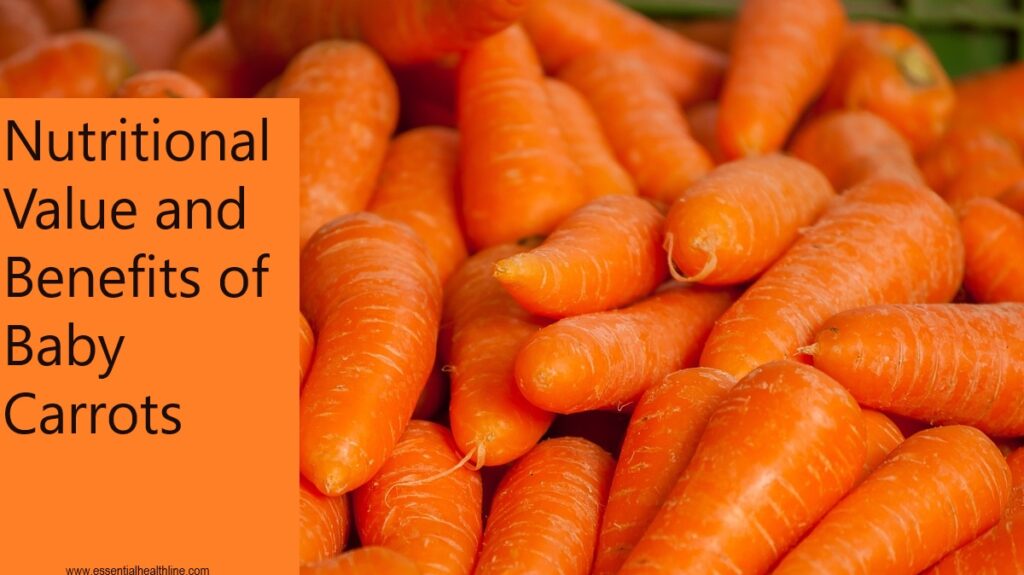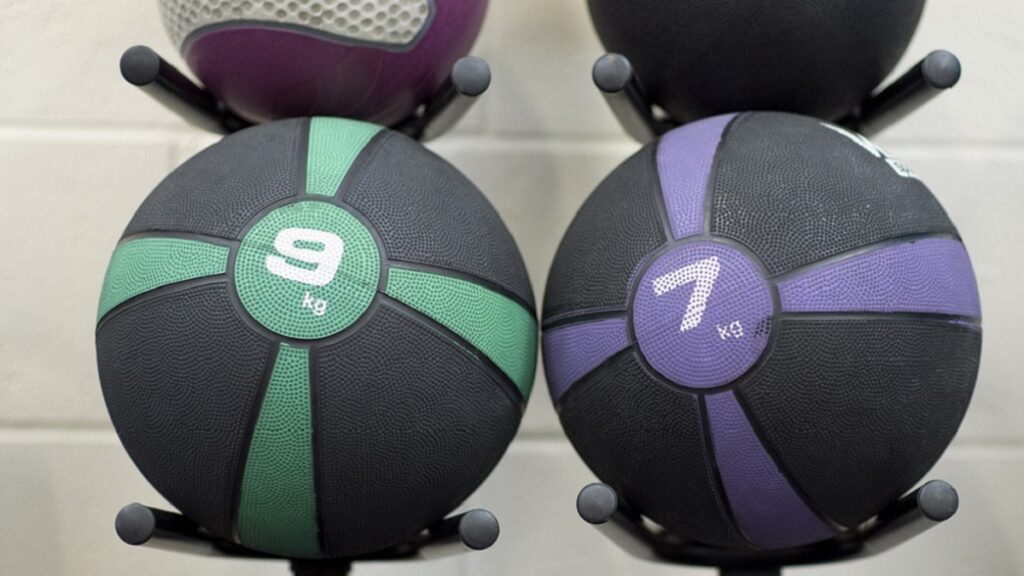Do you love snacking on baby carrots? These crunchy, bite-sized carrots, also scientifically known as Daucus carrota, are delicious and very nutritious. These root vegetables are rich in vitamin A, fiber, beta-carotene, and antioxidants. But what are the health benefits of baby carrots? How can they improve your health and well-being?
Baby carrots are typically orange, just like full-sized carrots. However, they come in different colors, such as red, white, yellow, and purple. The different shades give them different carotene compounds. You could enjoy the baby carrot rainbow as you enjoy them.
In this article, I’ll discuss the excellent nutritional benefits of baby carrots. You will learn how they can boost your immune system, protect your eyesight, lower your cholesterol, the best way to consume them, and much more.
Read on to discover why they are a superfood that you should include in your diet.
11 Wonderful Health Benefits of Baby Carrots
Baby carrots contain various chemical plant compounds that give them medicinal and health benefits. They’re chock full of vitamin A.
Notably, it’s a valuable fiber, beta carotene, which gives them their bright color, and potassium. It also is an excellent source of vitamin K1. One serving of these vegetables has 250% of your daily vitamin A dose. This antioxidant is vital for your eye health and your immune system. It also helps your heart, kidneys, and other organs function properly.
They are rich in phytochemicals with anti-inflammatory and antioxidant effects that might help reduce the risks of cardiovascular disease. Polyphenols in baby carrots help increase bile secretion, which helps reduce triglyceride and cholesterol levels.
These veggies have antiseptic qualities. These antiseptics can be used as laxatives, vermicides, and treatments for liver conditions. Baby carrot oil helps with your dry skin. They can also help with stomach and gastrointestinal health.
These, however, are not the only health benefits of baby carrots. Below, I will comprehensively outline their numerous health benefits.
Boosting Your Immune System
Baby carrots are rich in vitamin A, which is vital in maintaining healthy skin, vision, and mucous membranes. Vitamin A also aids the production and function of white blood cells. These cells are the leading defenders of your body against infections and diseases. A cup of these carrots provides about 250% of the approved daily intake of vitamin A.
Baby carrots also contain vitamin C; this antioxidant protects your cells from inflammation and damage. It also helps your body produce collagen, a protein that strengthens your skin, blood vessels, and bones. Collagen also helps heal wounds and prevent infections. One cup of baby carrots provides about 10% of the recommended daily vitamin C intake.
They are also a good source of fiber. Fiber helps improve your digestion and lower your cholesterol levels. It also feeds the healthy and beneficial bacteria in your gut, which can improve your immunity and mood. One cup of baby carrots provides about 3.6 grams of fiber, 14% of the required daily intake for women and 10% for men.
Therefore, when added to your daily diet, baby carrots improve your immune function and overall health.
Eye Health
Baby carrots are rich in beta-carotene. A type of carotenoid that helps your body convert vitamin A. Vitamin A maintains good vision, especially in low-light conditions. It also helps prevent dry eyes, night blindness, and age-related macular degeneration.
Degeneration of the macular is an eye condition that affects your central vision. It’s an age-related retinal condition. This condition causes blurred and reduced central vision because of the breakdown of the inner layers of the macular.
Research showed that 40% of people who consumed beta carotene had a lower risk of macular degeneration than others.
These superfoods also contain lutein and zeaxanthin. Two other carotenoids protect your eyes from harmful blue light and oxidative stress. These antioxidants can reduce the risk of cataracts and glaucoma. Regularly eating these carrots can help you keep your eyes healthy and bright.
Heart Health
Baby carrots are rich in vitamins A, K, potassium, fiber, and antioxidants that can help lower hypertension, cholesterol, and the risk of heart disease. Here are some of the ways that they can improve your heart health:
Vitamin A: Vitamin A is an antioxidant that protects your heart from oxidative stress and inflammation linked to cardiovascular problems. Vitamin A also helps your immunity function properly and prevents infections that can damage your heart.
Vitamin K: It’s a nutrient that causes blood to clot appropriately, preventing excessive bleeding. Vitamin K also helps prevent calcium buildup in your arteries, which may lead to atherosclerosis and heart attacks.
Potassium: It’s a mineral that balances sodium’s effects and helps regulate your blood pressure. High blood pressure strains your heart and increases your risk of heart failure. Potassium also helps relax your muscles, including your heart muscles.
Fiber: Fiber is a type of carbohydrate. It helps lower your cholesterol levels and keeps the stability of your blood sugar. High cholesterol levels clog your arteries and lead to heart disease. Fiber makes you feel full and prevents overeating, which helps you keep a healthy weight and reduces your risk of obesity and related heart problems.
The purple carrot contains anthocyanin pigments. These powerful antioxidant pigments grab and hold onto the harmful free radicals in your body. They also prevent heart disease by slowing the clotting of the blood.
Oral Hygiene
Carrots are packed with vitamins and minerals vital to the mouth’s hygiene. They make your teeth strong and gum healthy. The following are the benefits of baby carrots on your oral health:
Vitamin A: These are fat-soluble vitamins that boost immunity. It is also responsible for combating tartar and plaque buildup on your teeth. Vitamin A also fortifies your teeth’ enamel.
Vitamin K1: Vitamin K1 strengthens your jaw bones. In addition, it also boosts gum health. Besides, it prevents irregularities and periodontal ailments.
Biotin: It’s responsible for the conversion of food into energy. In addition, it synthesizes protein & fat metabolism. Consequently, your body is able to regulate blood glucose levels effectively and strengthen your gum health.
Weak jaw bones cause various problems, for example, Temporomandibular disorders. Others include loss of teeth and teeth mobility difficulties. As a result, you might suffer from chronic facial pain.
Baby carrots are fibrous vegetables. Chewing on fibers helps in the production of more saliva because the glands induce salivary glands. They also contain large amounts of water.
Reduces the Risk of Cancer
Baby carrots contain plant compounds known as polyacetylenes, which have anticancer properties. As with blood oranges, they also possess other nutrients and antioxidants that may reduce the risk of certain types of cancers, such as lung, prostate, and leukemia.
According to some studies, eating more beta-carotene, a type of carotenoid found in these carrots, reduces the risk of lung cancer by slightly above 40%. Its fibrous property also helps with indigestion and reduces the risk of colon cancer.
Prevention of Stroke
One of the benefits of baby carrots is their potential role in preventing stroke. A stroke happens when there is a blockage in the blood vessel in the brain or the vessel bursts, cutting off the oxygen supply to the brain cells.
Consuming these tasty snacks reduces the risk of stroke by 68%. Baby carrots are rich in beta-carotene, a type of carotenoid that is an antioxidant and protects the blood vessels from damage.
Beta-carotene also lowers blood pressure and cholesterol levels, contributing to stroke. Adding baby carrots to your daily diet effectively boosts your health and reduces your risk of stroke.
Management of Diabetes
Research shows that a medium baby carrot contains only 4 grams of net carbs. Even though they are slightly sweeter than regular ones, they rank low in the glycemic index, so they do not significantly raise blood sugar.
While regular carrots rank between 32 and 46 in the glycemic index, a recommended daily serving of baby carrots provides 30 calories, 0.5g of protein,0.1g of fat, and 7g of carbohydrates.
These “babies” contain vitamins A, B-6, fiber, and carotenoids. These compounds may protect you against diabetic retinopathy. It is a common complication of diabetes that causes vision loss.
They are a high-in-fiber, low-calorie food that may prevent or manage type 2 diabetes. Baby carrots have no added sugars and are a healthy addition to meals for people with diabetes.
Pectin, a soluble fiber, lowers blood sugar levels by slowing down your starch and sugar digestion.
Lower the Risk of High Blood Pressure
One of the benefits of these bite-sized carrots is that they help lower the risk of high blood pressure. It’s a condition that increases the risk of stroke, heart disease, and kidney problems.
They contain potassium and dietary fiber. Potassium helps balance sodium levels and flush out excess fluid from your body. It also reduces tension in your blood vessel walls.
Fiber, on the other hand, helps to prevent plaque buildup in your arteries. It manages your cholesterol levels and significantly reduces the risk of atherosclerosis. It also raises the blood lipid profile, which lowers hypertension and improves insulin sensitivity and fibrinolytic activity.
Another compound that helps lower blood pressure is beta-carotene. Beta-carotene is an antioxidant that protects the blood vessels from oxidative damage and inflammation. Your body converts this antioxidant to vitamin A.
Combating Allergies
Allergies are an immune system reaction to some substances in your body. The anti-inflammatory compounds found in baby carrots reduce inflammation, a common symptom of allergic reactions. Vitamins A and C have anti-inflammatory properties that help lower histamine levels. These are chemicals that cause inflammation and itching in your body.
Baby carrots may prevent oral allergy syndrome. A type of food allergy that results in itching and swelling in the mouth and even throat when eating raw vegetables and fruits. Cooking or peeling baby carrots reduces the allergenic proteins that trigger this reaction.
They may lower the risk of developing allergies, such as asthma, eczema, or hay fever. They also provide beta-carotene, lycopene, lutein, zeaxanthin, and polyphenols, which are antioxidants that modulate the immune system and prevent it from overreacting to harmless substances.
Skin Protection
Baby carrot oil is very rich in antioxidants, such as beta-carotene, which may protect your skin from free radical damage and exposure to sunlight. It may also increase cell turnover, which means it helps the skin renew itself and look healthier and younger.
It also has anti-inflammatory properties, soothes the skin, and reduces redness and irritation. Its antibacterial properties prevent infections and acne. It regulates sebum production and resultantly balances the oiliness or dryness of the skin.
The oil can also help treat skin conditions like eczema, psoriasis, and dermatitis.
Eases Digestion
Baby carrots are fiber-rich, which can help prevent constipation, promote regular bowel movements, and promote better digestion. Fiber also provides food for healthy gut bacteria, improving gut health and immunity.
They contain vitamin A, which helps protect the digestive tract linings from damage and inflammation. They are low in calories and fat, which help prevent overeating and weight gain, negatively affecting digestion. Baby carrots, therefore, are a healthy and tasty way to support digestive health.
How to Consume Baby Carrots
To reap the maximum benefits from these vegetables, you should eat them raw or lightly cooked. It preserves their crunchiness and nutrients. Avoid overcooking your baby carrots, as they can lose flavor and texture.
You can dip them in yogurt or other healthy dips to add protein and healthy fats to your snack. Pairing them with other fruits and various vegetables to create a colorful and varied salad or platter can also be a way of consuming it. You can take it as carrot puree or as a carrot casserole.
You can also take it in the form of carrot juice. However, it is essential to note that juicing fresh carrots removes the high fiber content, which is vital for digestion. It’s therefore recommended that you consume whole carrots and juice.
Poor storage gives the baby carrots a shorter shelf life. However, these crunchy carrots can last for two to three weeks in the refrigerator if stored properly. Freezing them in airtight containers after blanching them extends their shelf life even longer.
Side Effects of Baby Carrots
What may be too much for you may not be too much for someone else. Some of the side effects of consuming these carrots are:
Carotenemia: Carotanemia is a condition that turns the skin yellow due to excess intake of beta-carotene, which is found in carrots. The condition is not harmful and is usually resolved by reducing the consumption of carrots.
Food poisoning: Food poisoning occurs if the baby carrots are contaminated with bacteria such as salmonella, which causes symptoms such as vomiting, nausea, diarrhea, fever, and abdominal cramps.
It is essential to thoroughly wash the baby-cut carrots before eating them and store them in a cool and dry place. Ensure that you add a small amount of chlorine to the washing water. Chlorine prevents the potential spread of foodborne pathogens and limits the risk of foodborne diseases.
Allergic reaction: Symptoms of baby carrot allergy can vary from mild to severe. They usually are mild and involve swelling, itching, or redness in the mouth, ears, or throat. Some individuals may also experience vomiting, diarrhea, sneezing, runny nose, or wheezing. In some rare cases, anaphylaxis can occur, which could be a life-threatening condition.
Conclusion
Baby carrots are a nutritious snack with many health benefits. Some benefits include improving vision, boosting immunity, preventing infections, reducing inflammation, and lowering blood pressure.
They are also rich in antioxidants, fiber, vitamins A, and C, and other minerals. Baby carrots can be eaten raw, cooked, or added to salads, soups, and stews. They are a versatile and delicious way to increase the intake of vegetables and improve overall health.
However, the consumption of baby carrots should be done in moderation. Should any allergic reaction arise, seek medical attention immediately.



